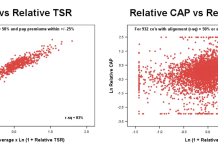John Binns, partner at BCL Solicitors LLP, considers the potential impact of Brexit on the UK’s anti-money laundering laws
What effect will Brexit have on the UK’s anti-money laundering and counter-terrorist financing laws?
As an EU member state, the UK has drawn at least a large part of its anti-money laundering (AML) and (CTF) regulations from the provisions of the Money Laundering Directives (MLDs), which have needed to be transposed into domestic Regulations by HM Treasury (HMT) under the European Communities Act 1972 (ECA 1972).
The latest (and possibly last) example of that was the Fourth Anti-Money Laundering Directive (EU) 2015/849 (MLD4), which the UK transposed into the Money Laundering, Terrorist Financing and Transfer of Funds (Information on the Payer) Regulations 2017, SI 2017/692 (MLR 2017). The Sanctions and Anti-Money Laundering Act 2018 (SAMLA 2018) effectively provides for a new power for HMT to use to amend or replace MLR 2017, once the UK is no longer bound by EU law.
Will the UK still have to comply with MLD5, even after Brexit?
The EU has since passed the Fifth Anti Money Laundering Directive (EU) 2018/843 (MLD5) and the Sixth AntiMoney Laundering Directive (EU) 2018/1673 (MLD6), though the deadlines for implementing them have not yet arrived. Meanwhile, the UK government has negotiated a draft withdrawal agreement with the EU, which contains provisions that would oblige it to continue to apply EU laws during a transition period, and jointly agreed a (non-binding) political declaration, paragraph 84 of which makes clear that the EU and the UK would continue to work together on AML issues after Brexit. HMT then consulted on the transposition of MLD5 on the assumption that the withdrawal agreement would take effect so that the UK would be bound to comply with it.
On that basis, it proposed tightening up MLR 2017 in various ways. These include a significant expansion of the range of businesses that will have to apply them, including in the virtual or crypto-currencies sector, letting agents in some circumstances, and art intermediaries in free ports. They also include measures to expand the scope and availability of registers of beneficial ownership.
What will the UK do in the event of a ‘No deal’ Brexit?
At the time of writing, it is not clear whether the draft withdrawal agreement or any variant of it will be ratified in the event that the UK leaves the EU. If not (ie a ‘No deal’ Brexit), or if a variant of that agreement does not include a transition period that includes the implementation deadlines for MLD5, the UK will have a choice to make about whether and to what extent it complies with it. So far, there has been no specific indication from the government about this. Certainly, the UK has historically been as tough or tougher on AML laws than the MLDs have required, and the government’s rhetoric on economic crime is such that the UK might comfortably expect it to continue to follow that path.
However, it is inarguable that at least some aspects of MLD5 constitute increased burdens on the private sector, while the obligations on the state itself (chiefly, to build the architecture for sharing beneficial ownership information) are not trivial. So, there is at least some potential for debate about whether to implement these provisions, should the UK have no obligation to do so. One practical difficulty with having such a debate, however, is timing.
The UK is due to leave the EU on 31 October 2019, and in the event of a ‘No deal’ Brexit, there may be other things on the government’s agenda than MLD5, while the deadline for EU member state to implement it is only a couple of months after that, on 10 January 2020. If the UK has left without a deal, of course, this deadline won’t be binding on it. However, due to the practical impact of diverging from EU laws, a decision not to enact those provisions by then would be significant, and the pressure of timing is likely to weigh in favour of doing so as originally planned.
Does MLD6 matter to the UK?
MLD6 is less of a worry for the UK because UK laws already comply with the vast majority of it (including, for instance, an obligation to prohibit laundering of the proceeds of specified predicate offences—the UK’s laws already apply to literally any predicate offence.
But there is one intriguing exception, in the form of a requirement to make corporate entities vicariously liable for acts of money laundering committed for their benefit by an individual in a leading position, or which have been made possible by a lack of supervision or control by such an individual.
The UK’s laws on corporate liability are very roughly consistent with the first of these categories, but not at all with the second, which looks more like the extended ‘failure to prevent’ model that has been sitting in the in-tray of the Ministry of Justice for some years. So, it will be intriguing to see whether the government finds time to enact a new corporate offence of failing to prevent money laundering before the MLD6 transposition deadline of 3 December 2020.
Again, whether the UK is bound to do this after leaving the EU depends on what, if any, withdrawal agreement applies. In the current version, that deadline falls narrowly within the transition period. But in the event of ‘No deal’, the UK would again have a choice (as it would for any and all future MLDs, which of course, by then, the UK would have no hand in drafting) on whether to remain aligned with the EU or not.
In practical terms, the impact is in whether the UK is treated as an equivalent jurisdiction for the purposes of due diligence obligations— whether, for instance, a bank in France is entitled to assess the risks of, or require documentation and information from, a UK customer to roughly the same standard as one from an EU member state. Ultimately, it is the value of that equivalence status that will need to be weighed up against the burdens of complying with MLDs generally, as the UK ‘takes back control.’
John Binns is a partner in the business crime and corporate regulatory department of BCL Solicitors LLP.











